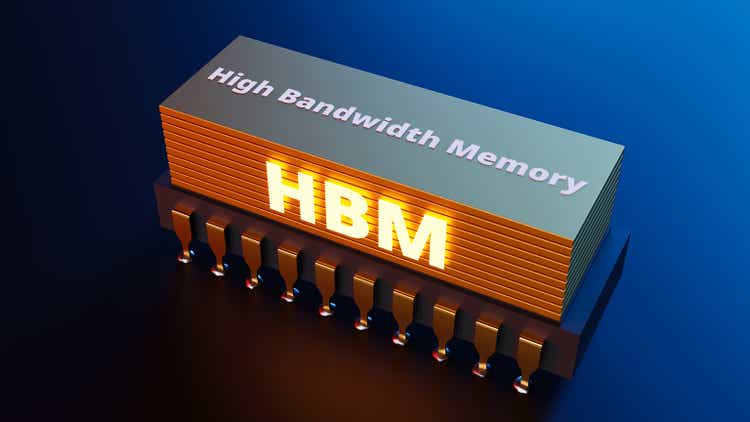
mesh cube/iStock via Getty Images
Chinese tech companies including Baidu (BIDU), Huawei Technologies and startups are storing high bandwidth memory chips from Samsung Electronics (OTCPK:SSNLF) expecting new U.S. restrictions on exports of the semiconductors to China, Reuters reported.
The companies have increased their purchased of the HBM chips, which are used in AI applications, since early this year. This has led to China amounting to about 30% of Samsung’s HBM chip revenue in the first half of 2024, the report added.
The South Korean tech giant had noted in its earnings release in July that it sees strong demand for HBM chips in the second half of 2024 due to AI applications.
The move by the Chinese companies show that China intends to keep its technology ambitions on track amid trade tussle with the U.S.
Last month, it was reported that the U.S. government planned to introduce a new rule this month which would expand its reach to halt exports of semiconductor manufacturing equipment from some foreign nations to Chinese companies. However, shipments from U.S. allies, which export vital chipmaking parts, such as Japan, the Netherlands and South Korea, would be excluded.
The guidelines are expected to define parameters for curbing access to HBM chips, the report noted. However, the details of the proposed HBM curbs could not be determined and how it would impact China.
HBM chips help in the processing of huge amounts of data used by AI applications. The market for HBM chips is led by South Korean companies SK hynix and Samsung and, to a lesser extent, by Micron Technology (MU). SK Hynix has been the main supplier of HBM chips to Nvidia (NVDA) and has been delivering HBM3 since June 2022.
Demand by the Chinese chip companies has been largely focused on HBM2E, which is two generations behind the latest version HBM3E, according to the report.
Companies including satellite makers and Tencent (OTCPK:TCEHY) (OTCPK:TCTZF) have been purchasing the HBM chips. Chip designing startup Haawking has also ordered HBM chips from Samsung, the report added.
Huawei has been using Samsung HBM2E chips to make its advanced Ascend AI chip, the report stated.
Two Chinese chip producers were, reportedly, in the early stages of manufacturing HBM semiconductors. Huawei, reportedly, also plans to produce HBM2 chips in collaboration with other local companies by 2026.
In June, it was reported that the U.S. was jeopardizing China’s ability to manufacture alternatives to Nvidia’s AI chips. The U.S. Commerce Department’s officials had pressured American chip equipment makers and their suppliers to stop selling to Huawei and to the Chinese company which makes Huawei chips. Due to this, Huawei has been facing issues to increase production of its Ascend AI server chip.
